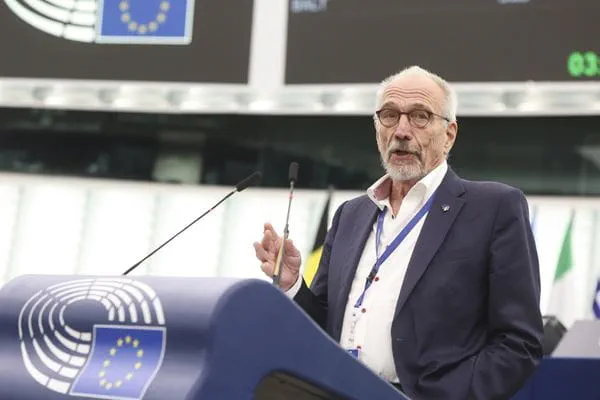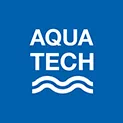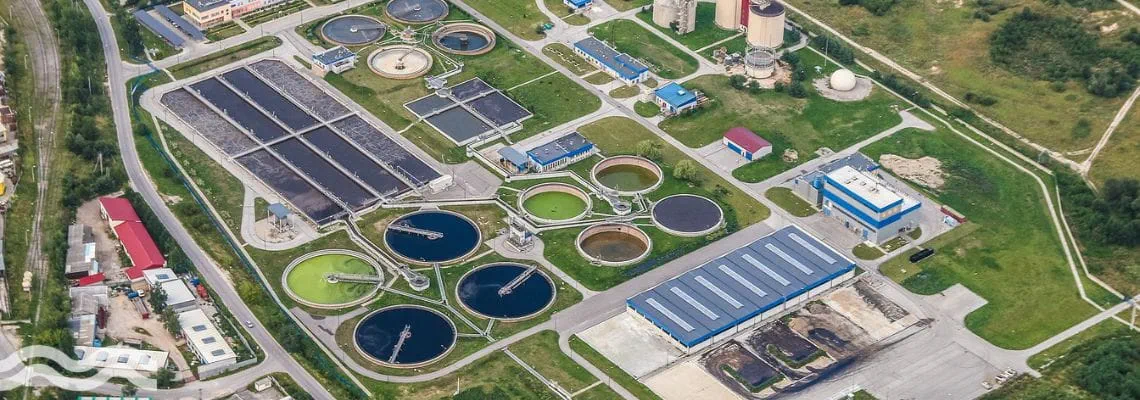Across the European Union, members states will face tighter rules on the treatment and reuse of urban wastewater after proposals from earlier this year were approved by MEPs.
Secondary and tertiary treatments to remove organic matter
The EU Urban Wastewater Treatment Directive calls for all urban wastewater to undergo a process of secondary treatment by 2035. The aim is to remove ‘biodegradable organic matter’ in agglomerations of 1,000 population equivalents (pe) or more - the equivalent of the average pollution released by one person during one day x 1,000.
Tertiary treatments in all large wastewater plants covering 150,000 pe must be applied by 2039. This is intended to remove nitrogen and phosphorus to decrease the risks to water bodies from various dangers, such as eutrophication. These plants will also be required to provide quaternary treatments to remove a broad range of micro-pollutants.
By 2045, the directive requires tertiary and quaternary treatments to take place in smaller wastewater plants covering 10,000 pe and above.
Strict monitoring of ‘public health parameters’ including PFAS
The directive requires wastewater treatment plants to conduct better monitoring of a wide variety of pollutants, for example, ‘public health parameters’, such as known viruses, including SARS-CoV-2 virus and its variants, poliovirus, influenza viruses, and emerging pathogens.
Monitoring will also be required for chemical pollutants, including per- and polyfluoroalkyl substances (PFAS); and microplastics. Antimicrobial resistance will be monitored in wastewater plants covering agglomerations of 100,000 pe and above.
Polluters must pay

Photographer: Fred MARVAUX; © European Union 2023 - Source: EP
Quaternary treatments costs will largely be met by producers of both medicinal products for human use and cosmetic products. However, the policy will be complemented by national financing to avoid the costs being passed down the line to affect the availability, affordability and accessibility of medicines and other vital products.
Nils Torvalds, from Finland’s Renew Europe Group, said: “The legislation will significantly improve water management and wastewater treatment standards in Europe, especially with new rules on removing micro-pollutants coming from medicines and personal care products.
“We are making sure that the impact of the rules on the affordability of medicines will not be disproportionate and that harmful chemicals such as PFAS will be monitored and better dealt with in the future.”
At least 80 per cent of the costs required to remove micro-pollutants will be recovered with introduction of extended producer responsibility.
Increasing reuse of treated water
To address issues of water scarcity, the directive requires all EU countries to promote the reuse of treated wastewater from urban treatment plants, especially in water-stressed areas.
Additionally, the directive calls for measures on reuse to be considered in national strategies on water resilience.
Increasing use of renewable energy in treatment plants
The directive introduces an ‘energy neutrality target’ on wastewater treatment plants that will reduce greenhouse emissions and help the EU meet is climate neutrality objective. This will require plants to increase the share of renewable energy they use every five years: 20 per cent by 2030; 40 per cent by 2035; 70 per cent by 2040 and 100 per cent by 2045.Overwhelming support for wastewater changes
The proposals to revise the urban wastewater treatment directive were put forward in 2022. The plan was to align it with other key EU policy objectives for climate action, the circular economy, and as one of the initiatives under the zero pollution action plan for air, water and soil.
At the vote, 481 MEPs voted in favour, with 79 against the proposals and 26 abstentions.
Oliver Loebel, secretary general of EurEau, the association of European water utilities said that the organisation was, overall, very pleased with the outcome. Talking to Aquatech Online, he said: “It was a triumph for consumers and environmental protection, although achieving all of its targets will be a substantial challenge for our sector.”
He added: “The revised directive secures financing for micropollutants removal by implementing the Polluter Pays Principle, lessening the financial burden on citizens. It also introduces other crucial requirements aimed at safeguarding water quality across Europe.”





